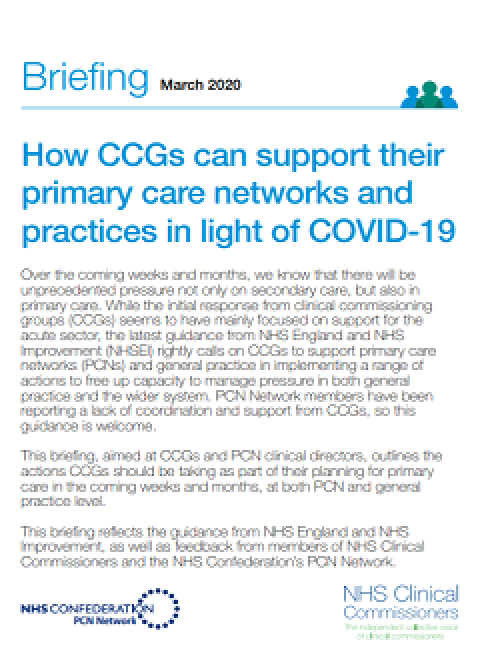The huge pressures ahead for primary care networks

This is an unprecedented time for the NHS, and the pressures on clinical directors over the coming months are going to be considerable. But what is clear from the circumstances we find ourselves in is that there is huge value and need in integrated working between GP practices, and beyond, writes Dr Graham Jackson. .
This is an unprecedented time for the NHS, and the pressures on clinical directors over the coming months are going to be considerable. But what is clear from the circumstances we find ourselves in is that there is huge value and need in integrated working between GP practices, and beyond.
While all practices are having to bear huge burdens on time, resources and staff, working as a network may well prove to offer the flexibility, support and opportunities to deliver care in a different way, which will surely be needed over the coming weeks. The economies of scale that networks can offer across the resource portfolio, i.e. workload/workforce/fiscal, are likely to become a delivery requirement very rapidly.
Most primary care networks (PCNs) have matured hugely since their inception less than a year ago, but the current crisis will demand more of them very soon. This may be troublesome, but it is equally a big opportunity to demonstrate what a more integrated neighbourhood delivery model can achieve.
The rate of digital transformation has accelerated in this pandemic, highlighting the importance of people who are potentially infected with a highly contagious virus being able to access online and video consultations. The ability to do this at a network rather than simply practice level may prove to be invaluable, with practices able to pool staff to deal with demand.
There will be significant variation in the pressures being placed on practices. Even though practices in the same PCN would be expecting to serve a similar demography, the distribution of care homes, for example, is not linear. Shared data infrastructure, access to each other’s clinical records and the coalescing of operating procedures will support frontline clinicians, support staff and the population served.
Many are drawing comparisons between the response to COVID-19 and the huge public efforts that were required during the Second World War. Indeed, Churchill said: “never let a good crisis go to waste” and this is a sentiment echoed by many across primary care at the moment. This pandemic will undoubtedly be devasting to many parts of our society, but will reset the boundaries in many parts of our lives. Within the health and care sector, the development of innovative, collaborative working between practices, community providers and the voluntary sector will be expedited. This, in turn, will help to build the strong relationships that we know will be crucial to the future success of PCNs, and their place in the communities they serve.
The NHS Confederation’s PCN Network intends to play its part in supporting PCNs and clinical directors through the difficult times ahead. We have set up a regionally representative board of clinical directors to support us in this work.
If you feel the PCN Network can offer support, by sharing good practice or lobbying nationally, then please get in touch; equally if you wish to share your examples of local progress/innovation, we would be very keen to hear from you: PCNnetwork@nhsconfed.org
Dr Graham Jackson is the senior clinical adviser at the NHS Confederation. Follow him on Twitter @Jacksongraham9



